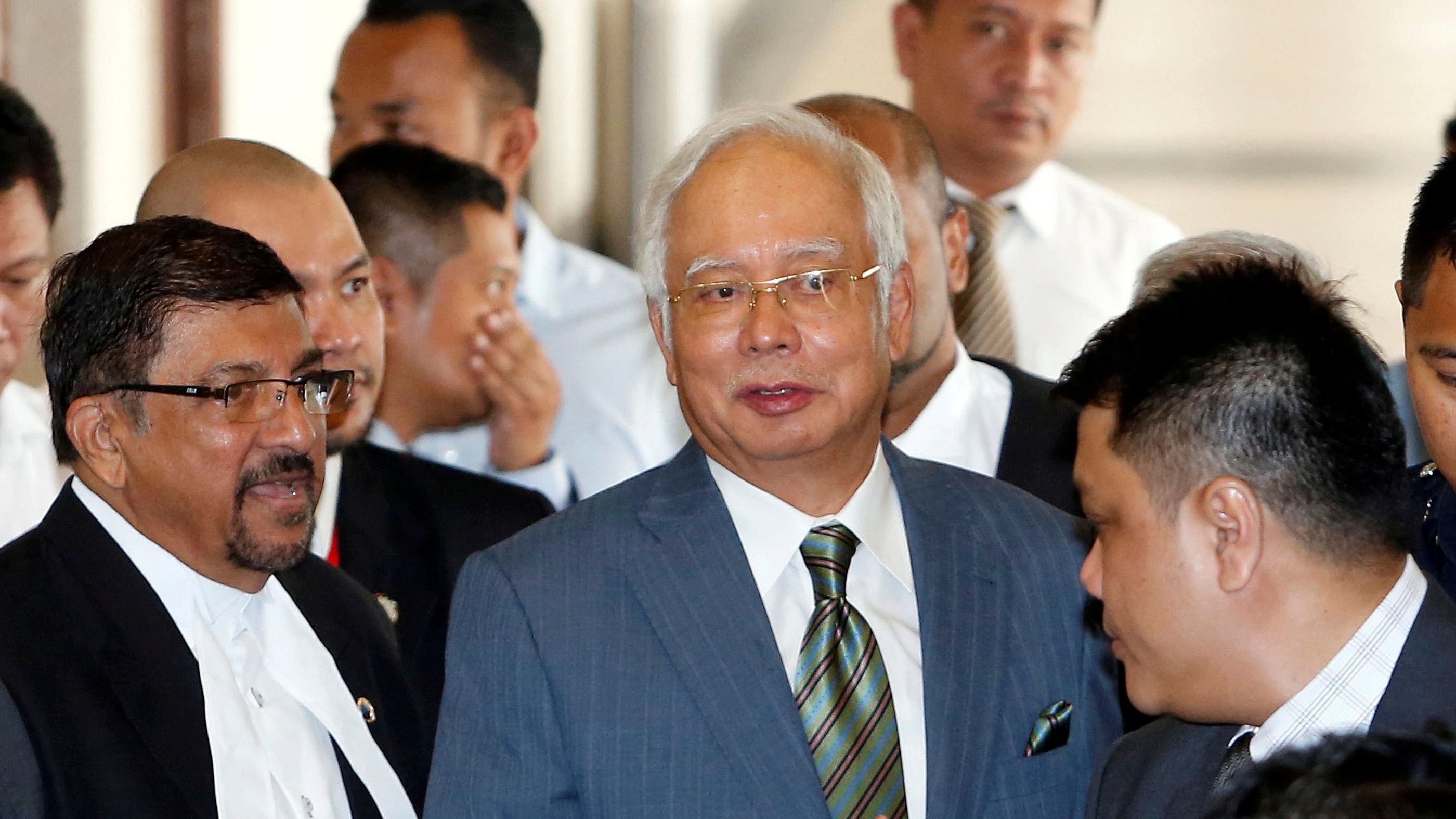
An Indian-origin banker has been issued a 10-year prohibition order and a 24-month conditional warning for his failure to report a suspicious transaction involving the jailed Malaysian Prime Minister Najib Razak’s infamous company 1Malaysia Development Berhad (1MDB).
Raj Sriram, the former deputy CEO and head of private banking of BSI Bank Limited's Singapore branch (BSIS), was issued the prohibition and warned on Monday to report the suspicious transaction, the Monetary Authority of Singapore (MAS) and the Singapore Police Force (SPF) said in a statement.
The prohibition order, which took effect on Monday, was issued by MAS, while the conditional warning was given by the SPF's Commercial Affairs Department (CAD), reported Channel News Asia.
The prohibition order bans Sriram from "providing any financial advisory service or taking part in the management of, acting as a director of, or becoming a substantial shareholder of any financial advisory firm under the Financial Advisers Act", said the joint statement.
CAD investigated Sriram in relation to his role in BSIS' business dealings and relationships with the subsidiaries of 1MDB and Aabar Investments PJS Limited, the purported subsidiary of the Abu Dhabi-based Aabar Investments PJS said.
SPF and MAS said the department found that there were "reasonable grounds for BSIS to file suspicious transaction reports in respect of 1MDB-related transactions" as required under a MAS notice for merchant banks on the prevention of money laundering and countering the financing of terrorism.
Due to Sriram’s neglect, BSIS did not file the reports, the statement said.
SPF and MAS said that in consultation with the Attorney-General’s Chambers, the CAD issued a conditional warning in lieu of prosecution to Sriram for two offences under the MAS Act.
Under the warning, Sriram paid a sum of SGD 150,000 to the Singapore Government's Consolidated Fund and committed to refrain from criminal conduct for a period of 24 months.
He will also continue to cooperate with CAD in its 1MDB-related investigations and will not accept any directorship positions or positions of similar substance or form for a period of four years from September 6 last year.
The statement also said that Sriram's conduct warranted a 10-year prohibition order as he held a senior position at BSIS and his neglect had contributed to BSIS' failure to file the suspicious transaction reports.
Ho Hern Shin, deputy managing director of financial supervision at MAS, said: "BSIS, of which Mr Sriram was deputy CEO and head of private banking, was a key conduit for tainted funds in the 1MDB debacle."
She noted that MAS withdrew BSIS' licence in May 2016 due to "serious and repeated breaches" of laws to prevent money laundering and the financing of terrorism.
The ultimate responsibility for ensuring a financial institution’s compliance with such laws and regulations rests with its board of directors and senior management, the Channel cited Ho as saying.
SPF and MAS said that they took a serious view of compliance with these laws and the filing of suspicious transaction reports.
CAD director David Chew said: "The suspicious transaction reporting regime is a key pillar of Singapore’s approach to anti-money laundering and countering the financing of terrorism.
"The Singapore authorities will not hesitate to take firm action against reporting entities, or their officers, who intentionally or negligently fail to file suspicious transaction reports when legally obliged to do so."
1MDB was a sovereign fund set up in 2009 with the help of Malaysian financier Jho Low to promote economic development.
Najib Razak, who was Malaysia's prime minister from 2009 to 2018, co-founded 1MDB and chaired its advisory board until 2016.
1MDB raised billions of dollars in bonds for use in investment projects and joint ventures between 2009 and 2013.
Conducting its largest-ever kleptocracy investigation, the United States Department of Justice (DoJ) said $4.5 billion was diverted to offshore bank accounts and shell companies, many linked to Low.
According to media reports, Malaysian authorities claim that billions more remain unaccounted for.
Najib, 69, is serving a 12-year jail sentence in Malaysia from August 2022 for 1MBD related offences.